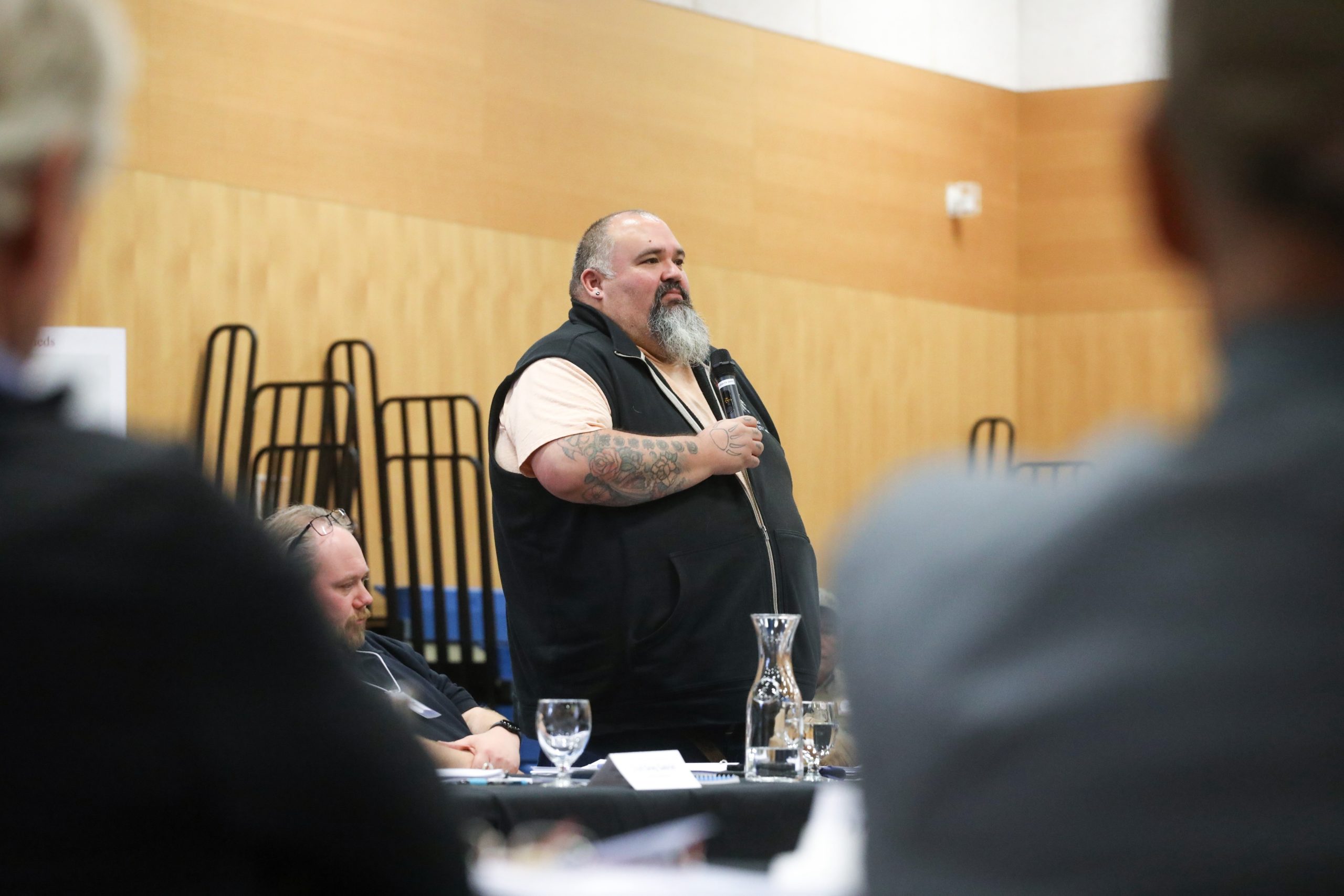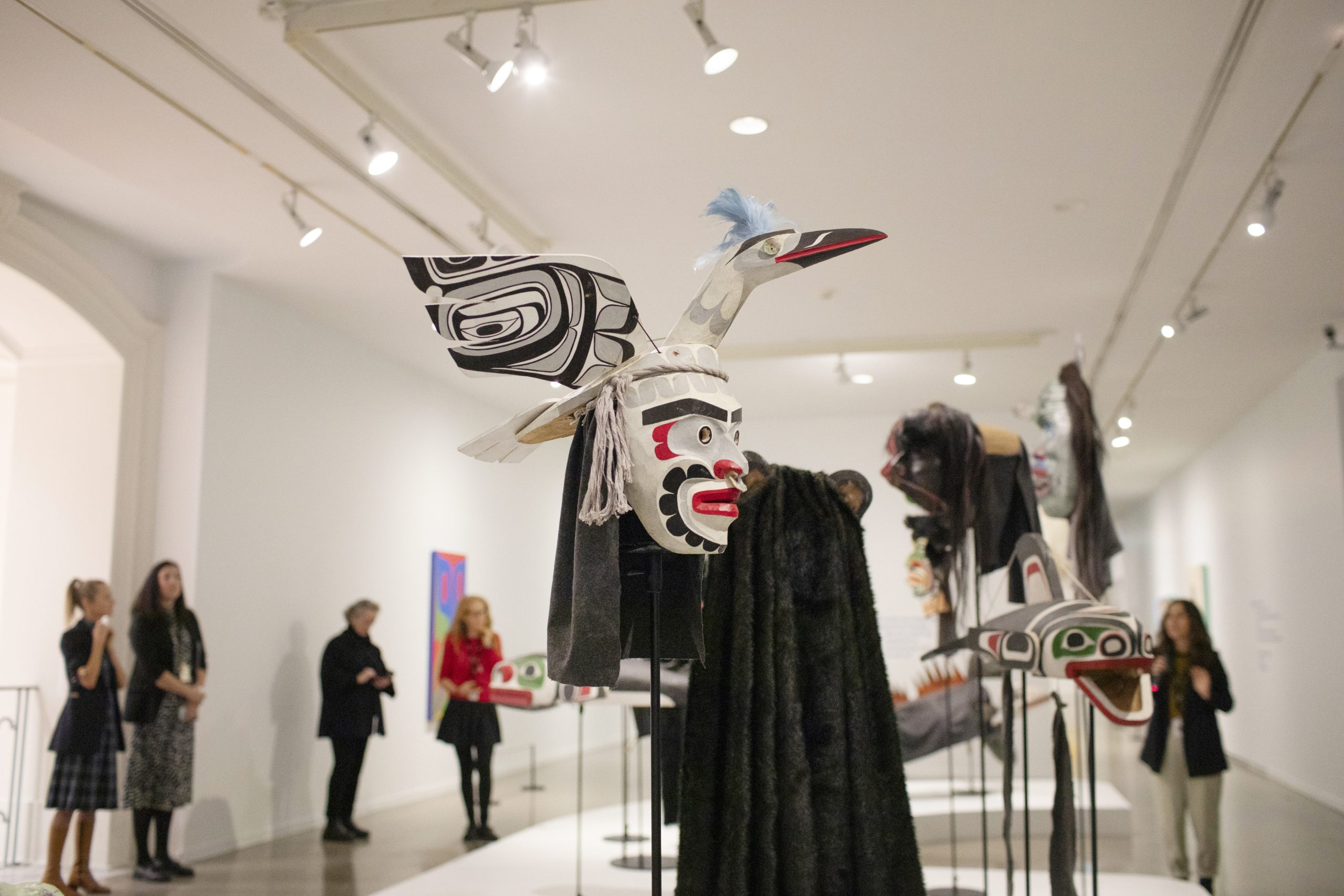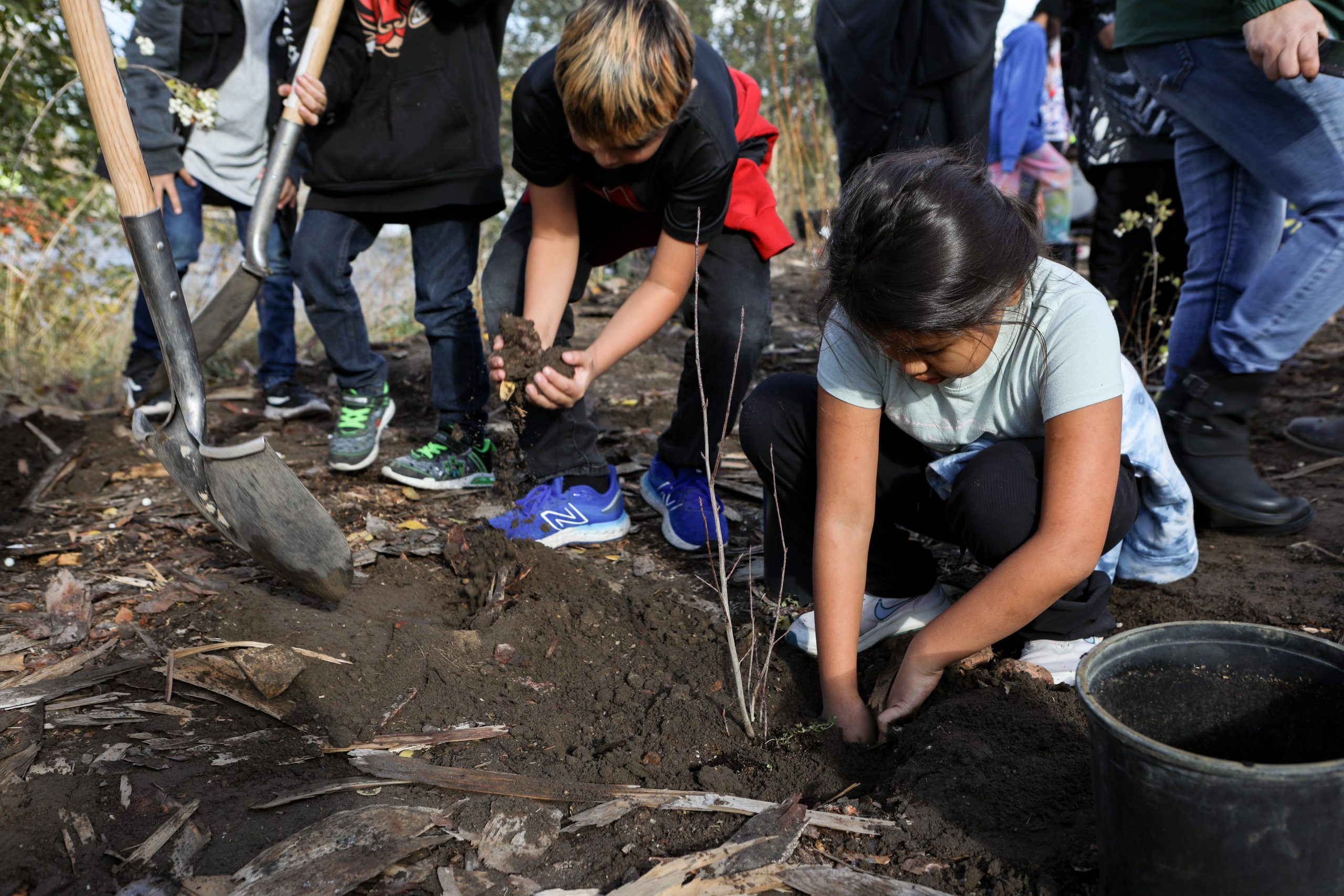In Tk’emlúps te Secwépemc, internship program teaches leadership skills on the land
Qwelmínte Secwépemc’s Knowledge Builders Program has grown steadily over the last five years, with teachings ‘grounded and founded in Secwépemc law’

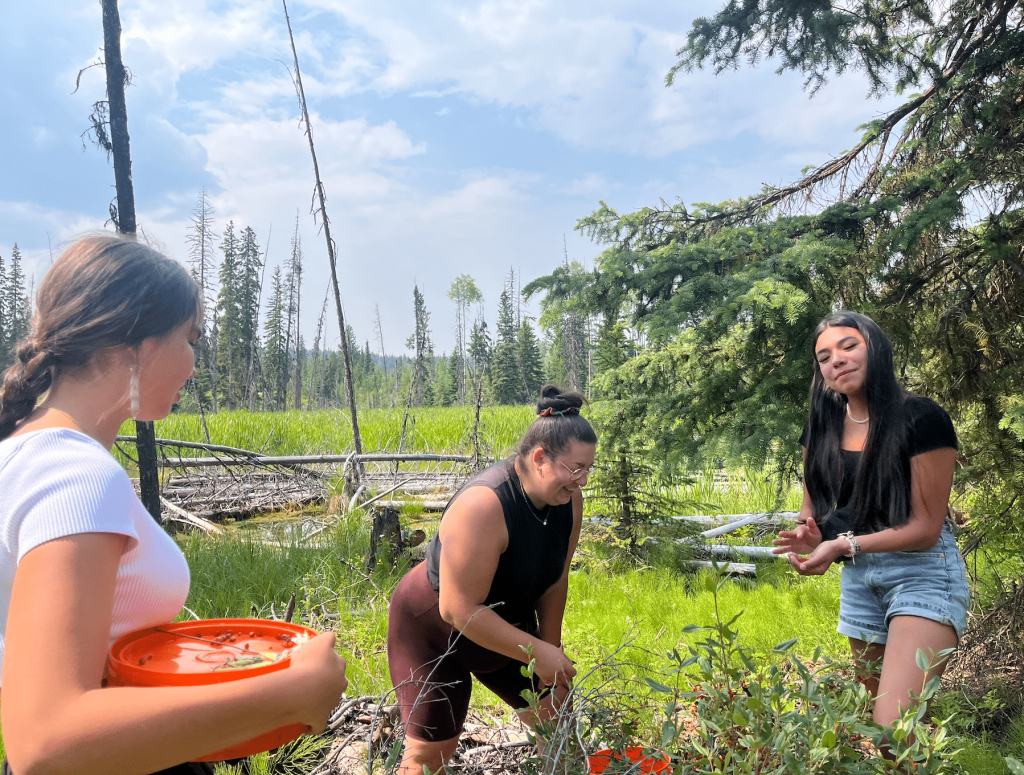
Drew Rose has a theory about why the Qwelmínte Secwépemc (QS) internship program has grown steadily over the past five years.
“Because it’s deadly,” says Rose, who graduated from the Team Skú7pecen Knowledge Builders Program and is now one of the co-ordinators.
QS is a Secwepemc collective based in Tk’emlúps te Secwépemc, with eight member communities focused on land preservation while combining Indigenous and western knowledge — a process they refer to as “walking on two legs.”
In 2019, four university students were involved in the first iteration of the internship program that connects young people with opportunities related to Secwépemc stewardship — learning from Elders and other experts.
Over the years the program has steadily grown to accommodate more students and has been running at capacity in recent years, with their 2023 cohort having 15 participants.
Now, there are two internship programs for both high-school and post-secondary students to participate in two- to four-month long programs. Both are referred to as Team Skú7pecen and are led by the Skú7pecen (porcupine) telling which demonstrates teamwork and unity for a greater cause.
Previous students have come from Secwépemc, Nuxalk, Cree, Dakelh, and many more nations.
“We have so many different nations represented within our program, where we do focus on Secwépemc ways of knowing and being but also allow openness and understanding to support their background and where they come from, their culture,” said Rose.
In a video explaining the Team Skú7pecen internship program, one of the staff members Sunny LeBourdais noted the program’s focus on creating future leaders.
“We are introducing the interns to the work of reconciliation and what it looks like to build and support government-to-government work, in a safe supported space that is grounded and founded in Secwépemc law,” she said.
One of the components of the program includes their summer speaker series where Elders, storytellers, and provincial representatives visit the students to share their stories and expertise.
“Qwelmínte Secwépemc has undertaken a summer speaker series showcasing a variety of guest speakers, facilitating intergenerational knowledge transfer to build up the next generation,” according to the QS website.
Rose explained the teachings from the speakers include drumming and the meanings behind the drum, as well as protocols around medicine picking, hunting and languages.
These lessons normally take place on the land, so the students have the opportunity to ask questions and learn from these knowledge carriers in a natural and open environment. Last year, for example, the interns spent time on the land harvesting and cleaning sxúsem (soapberries) — learning about the importance of respecting the territories and leaving an offering.
“It’s a privilege and it’s such an honour to sit with these knowledge carriers, and these Elders,” Rose said.
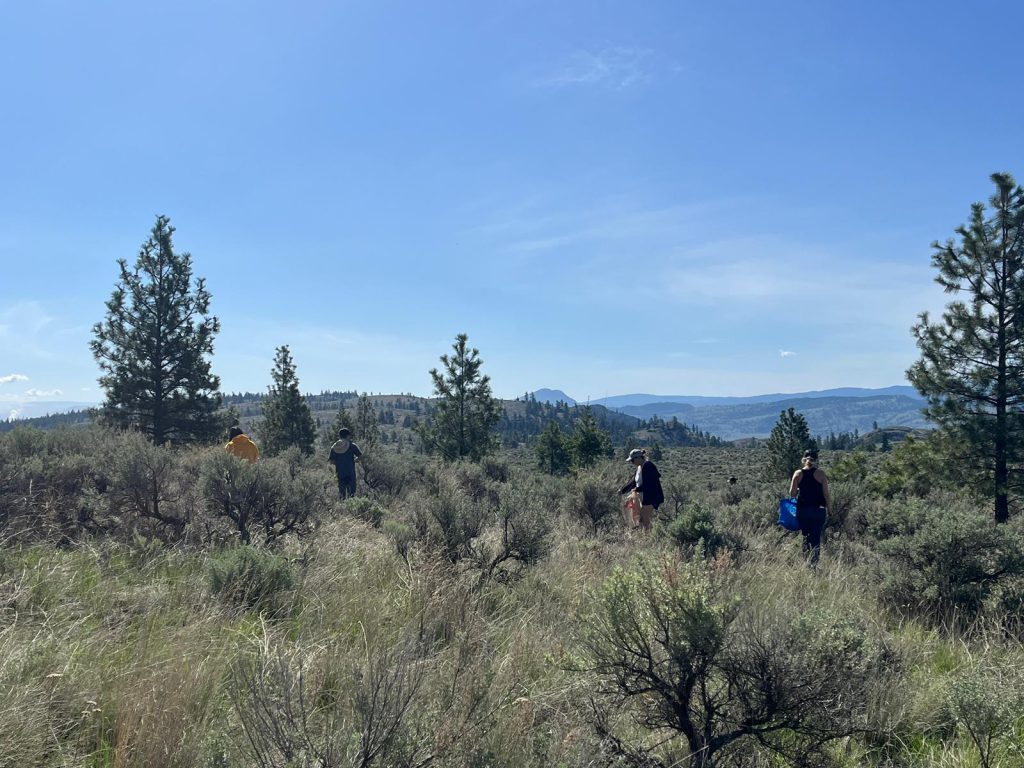
He also praised the students who are embracing the teachings, and later implementing them into their lives.
“Each and every one of them are going to take something different from these spaces or these sit downs, and then we talk about it so we can even broaden our understanding,” he said.
The interns also learn to understand Indigenous law and how to apply the knowledge to their work while then learning from provincial ministries who discuss their collaboration with Indigenous communities toward reconciliation, including the implementation of UNDRIP and DRIPA.
Rose notes the program is about supporting the next generation and leads them through their concept of walking in two worlds where they support Indigenous knowledge while also including non-Indigenous perspectives.
“We’re really just trying to meet them where they’re at, not where we want them to be, and supporting them to be the best version of themselves,” he said.
The QS program is a change for most students who are coming from a public high school or university.
Rose explains the unique structure of their program which leaves students with a sense of belonging.
“We make them feel supported and know that what they understand and how they see things is okay,” he said.
With the new-found confidence the students gain, they are able to become leaders and integrate their Indigenous knowledge into their classrooms and workplaces.
Jessica Nelson is the intern program co-ordinator, and previously graduated from the 2022 intern program. She said the growth in confidence and connection to who she is was impactful for her when returning to university.
“As an Indigenous woman, just feeling more connected and finding my voice within my own indigeneity,” she said.
“I think QS just really gave me that framework and that grounding, to feel more confident within myself to share that part of myself in western spaces.”
With the guardian and intern programs running out of the building that was once the Kamloops Indian Residential School, Nelson noted the humour and joy between the students is memorable.
“When you come into the office and you see the different generations laughing and just enjoying each other’s time it’s such a powerful, powerful moment,” she said.
While in the program, each student is responsible for a summer project. The projects can be tied into each student’s background and personal area of study. In the past these have included curriculum and policy development, a 215 resource list, and short videos for the QS YouTube and Tiktok accounts.
The interns may also work directly with the eight signatory communities and provincial departments including the Ministry of Forests and the Environmental Assessment Office.
Sitting at these tables with leadership and having their voice heard makes the students feel valued in the organization and in the larger community.
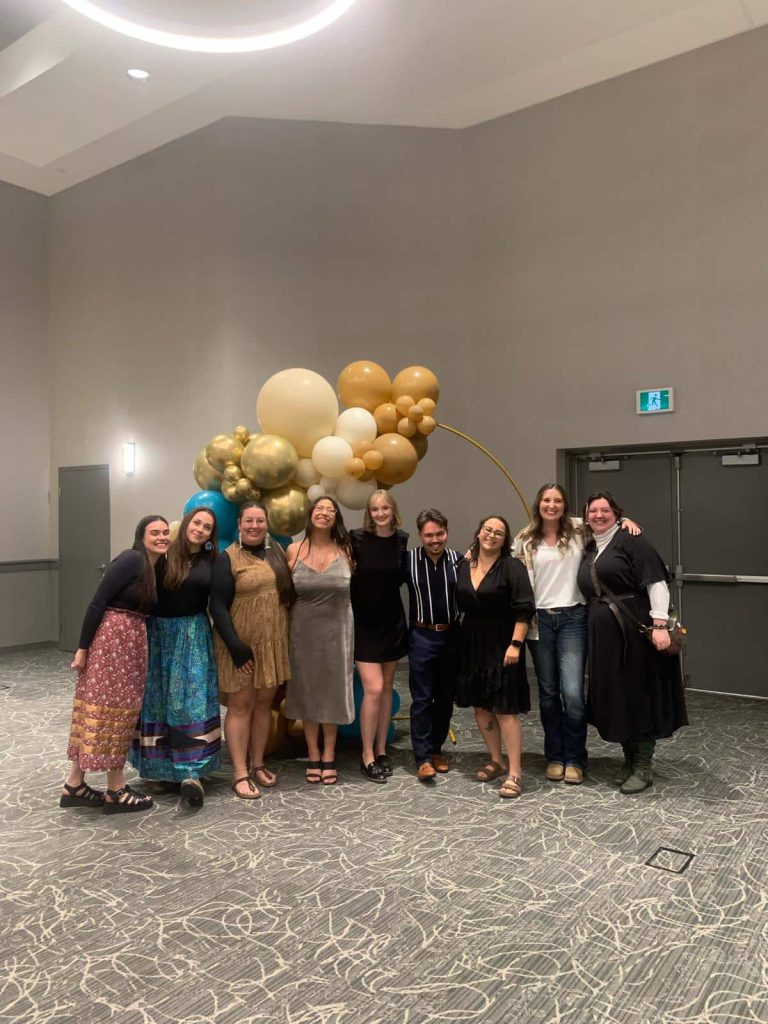
Rose commends Tamara Archie, who is the operations manager and interim co-director of external/internal communications, as a pivotal part of the program in ensuring the students feel included. She offers an Indigenous lens on conflict resolution and how to keep moving forward.
The program offers an opportunity to grow, as shown by Rose and Nelson who started as interns and are now holding full-time positions within Qwelmínte Secwépemc.
“Having that opportunity to be a part of the transition and this transformative work is so huge,” said Rose.
Rose and Nelson, who both have education degrees, continue to use their knowledge within Qwelmínte Secwépemc.
“We can be in the district, but we see the value of our program and what it offers,” said Rose.
Applications for the four-month internship program are currently open for post-secondary students until March 24. The deadline for the high school students guardian program will be up at a later date. Both programs are open to Indigenous and non-Indigenous students.
Author
Latest Stories
-
‘Bring her home’: How Buffalo Woman was identified as Ashlee Shingoose
The Anishininew mother as been missing since 2022 — now, her family is one step closer to bringing her home as the Province of Manitoba vows to search for her
-
Why aren’t there more Indigenous foods in ‘Canadian’ grocery stores?
Indigenous foods are varied, delicious and plentiful — but getting them to customers can be a challenge for small producers
-
Frustration grows over premier’s plan to alter Indigenous rights legislation
‘B.C.’s’ DRIPA law was touted as a reconciliation milestone. Now a series of court rulings has David Eby wanting to change it — a plan one lawyer calls ‘extremely offensive’





